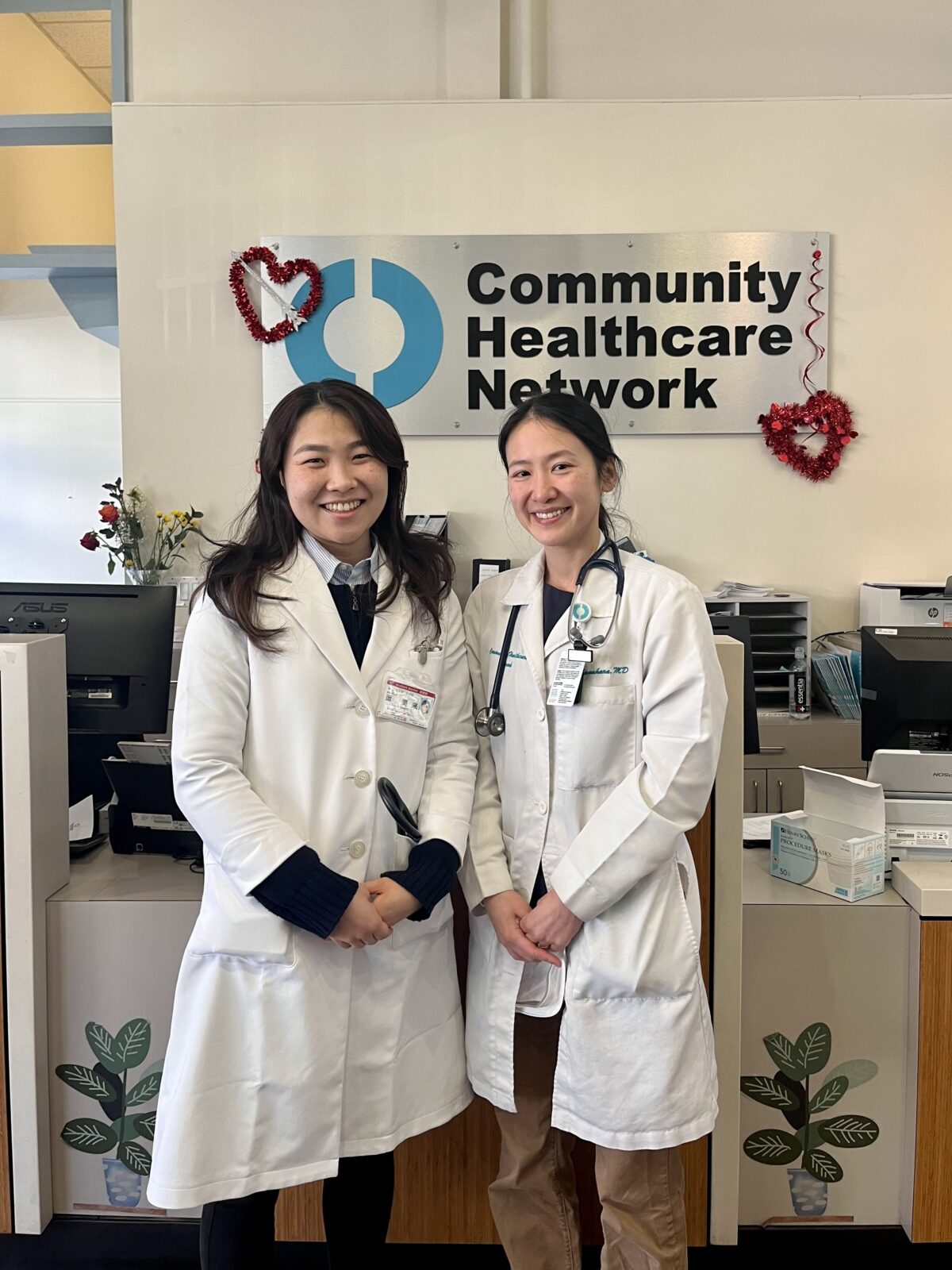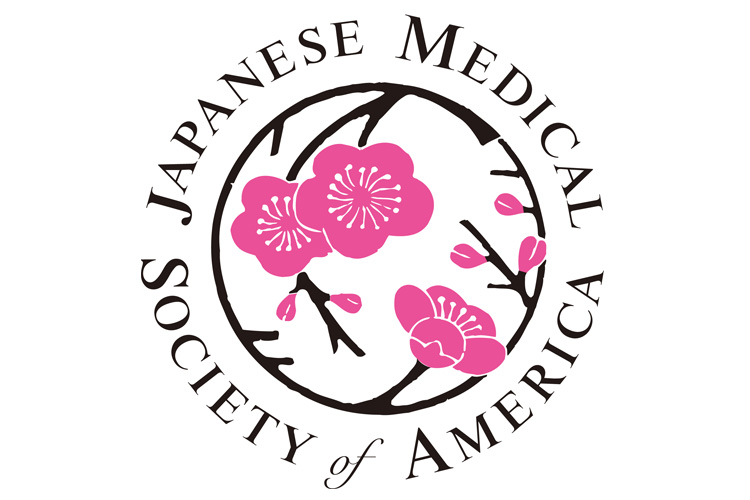In 2022, JMSA student representatives created a mentorship program to connect predmedical students, medical students, and residents of Japanese and Japanese-American backgrounds with JMSA physicians from various specialties. If you are interested in becoming a mentor or mentee, pelase email at jmsa.student@gmail.com.
Below is a reflection from Mirai Omote, who was able to shadow Dr. Satoko Kanahara, JMSA member.

My name is Mirai Omote, a 6th year medical student from Kanazawa Medical University.
I was blessed with the precious opportunity to observe Dr. Satoko Kanahara’s work this February and was able to learn what it is like to work in an underserved community in New York treating people of minority. I was also very fortunate to be able to witness the professionalism and charisma Dr. Kanahara entailed and the work life balance of a female physician working in the United States.
I first met Dr. Kanahara through the JMSA Mentorship Program in 2022. I was lucky to be paired with her for my aspirations aligned with her career. Ever since, she has kindly been my mentor, always providing me with unconditional guidance in my pursuit to Med-Peds residency and has also taught me more about LGBTQ+ care, a field that I am interested in.
The observership took place at the Bronx Health Center in New York, where Dr. Kanahara has been working for almost 10 years. Most of the patients are from underserved communities and many of her patients identify as a minority such as coming from unstable socioeconomic backgrounds, being non-English speaking, being an undocumented immigrant, or identifying as LGBTQ+. She had many Spanish speaking patients and it was evident Dr. Kanahara’s Spanish speaking abilities helped her patients felt heard and understood even when using an interpreter.
Dr. Kanahara is Med-Peds trained, enabling her to care for all populations. Most of her patients were adults with chief complaints ranging from chronic conditions such as diabetes, hypertension, asthma, anemia, mood disorders, to prescribing HIV medication and providing support towards patients identifying as LGBTQ+.
She would see approximately fifteen patients every day and some were video visits to help with the patient’s convenience. I felt video visits are an aspect of medicine I saw a pertinent difference in in how Japan and the U.S. provide healthcare. Dr. Kanahara’s video visits helped patients who were preoccupied with work and could not take time off to physically come to the clinic, or patients who had disabilities and had difficulty coordinating transportation to and from the clinic. I believe incorporating video visits into medicine in Japan would be very beneficial, for the wait to be seen in Japan can be very long at some hospitals and the time needed to go to and from the clinic can be taxing for the working generation. While being mindful of privacy and ensuring adequate level of care despite being unable to physically meet and touch the patient, I believe the development of video visits will make medicine more accessible and convenient to the Japanese population.
What I admire about Dr. Kanahara’s care is she always respectful of her patient’s autonomy and offered support in the best way suited for each patient. Many of her patients were of minority such as, coming from unstable socioeconomic backgrounds, being non-English speaking, being an undocumented immigrant, or identifying as LGBTQ+. She would always put herself in the patient’s shoes and hear her patients’ situation out. And regardless of what the patient conveys, she would be non-judgmental and understanding, creating a safe space for them to discuss their wishes and concerns. She would then discuss the best way to go about the matter on hand, incorporating the patient’s wishes and providing them with the best support possible. Each patient had different complex matters on hand as a minority but she would meticulously provide designated support for each individual patient in the best way possible. The way she carried the conversation was like one I had never witnessed before, being a good listener but also getting her medical advice across while always being encouraging and respectful.
Dr. Kanahara also worked with a variety of staff from different backgrounds to best help her patients and community. With the nurse practitioner taking the lead, Dr. Kanahara’s clinic makes a conscious and passionate effort to take part in community outreach work such as sexual educational and STD testing at a local high school. There were also social workers in her office who specialized in care of sexually trafficked victims and provided them with support to recover. Dr. Kanahara also worked closely with a psychiatrist to help her patients in a mental capacity and an OBGYN to provide more invasive care for gynecologic issues some of her patients had. It was clear that everyone in her clinic truly wanted to help their patients from a biopsychosocial stand point, and I had not seen such a positive organizational atmosphere before.
This opportunity of observing Dr. Kanahara’s work solidified my aspiration of wanting to work for the underserved and underrepresented population. I hope to be an advocate like her, providing unwavering support to those who’s voices often go unheard. Dr. Kanahara has been my mentor for over two years and I had heard a lot about her work during our mentorship meetings but actually being able to see in-person the work that she does was truly eye-opening.
Aside of her work in the clinic, it was inspirational seeing Dr. Kanahara enjoy her time with her partner and dog. Witnessing her working very hard in clinic, and unwinding at home showed me what a healthy work life balance looks like and reminded me of the importance of taking care of yourself.
Through observing Dr. Kanahara’s work I was able to see care I otherwise wouldn’t have been able to in Japan and am truly thankful of the opportunity. I hope to cherish everything I learned through observing Dr. Kanahara and integrate it into my own practice and life to provide the best care I can for my own patients. I am sure I will often reflect back to this experience as a valuable example of what kind of physician I want to become.
I would like to again thank Dr. Kanahara for giving me this precious opportunity to shadow her and her family for welcoming me in. I would also like to thank JMSA for organizing the mentorship program and pairing me with such a dedicated and inspirational mentor. Without JMSA’s support, I would not have been able to have this opportunity. Thank you very much.

